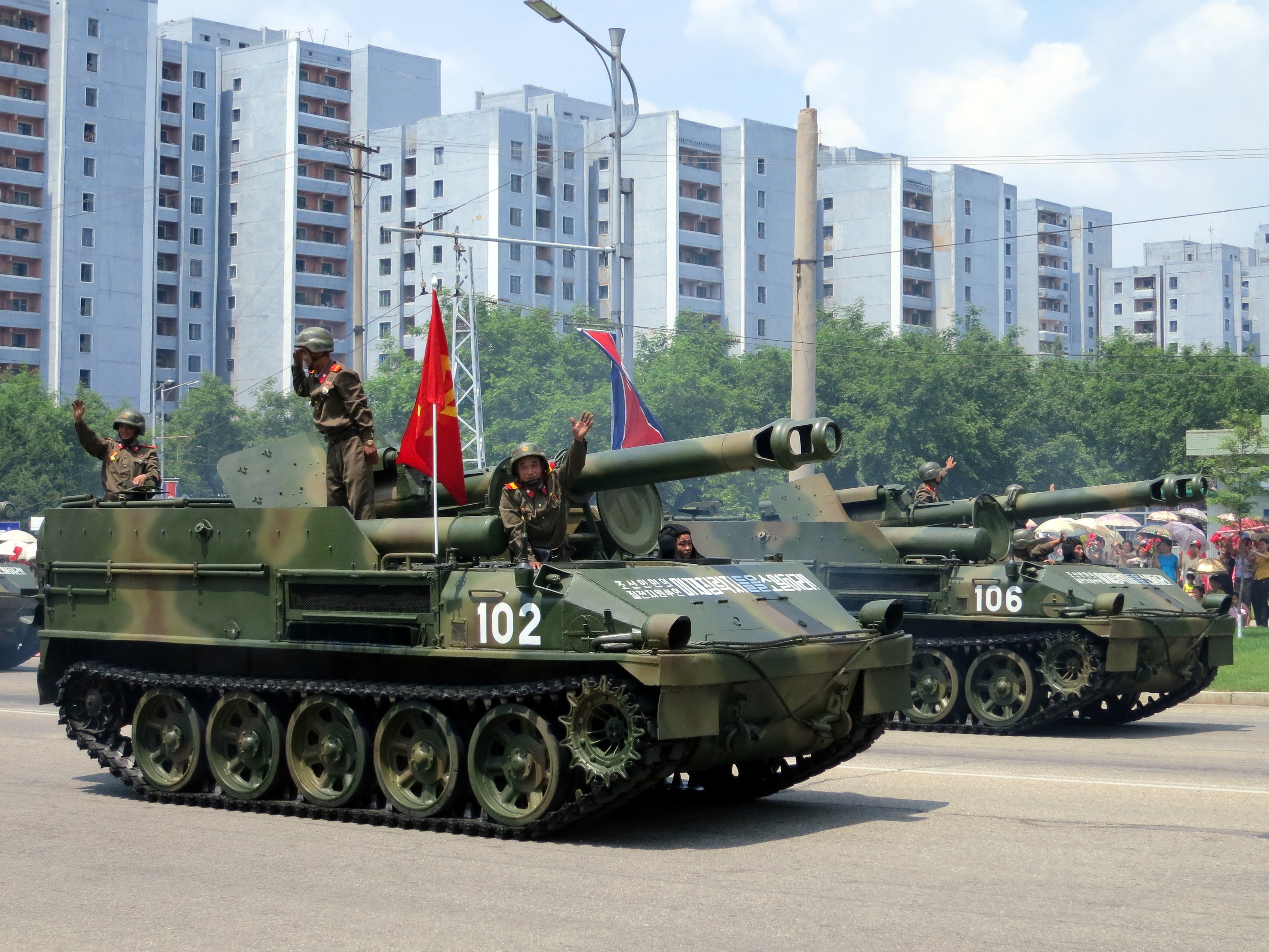
North Korean Ambassador Summoned to Foreign Office

The North Korean Ambassador has been summoned to the Foreign Office to receive a formal protest at the secretive country's latest nuclear weapons test.
North Korea claimed on Sunday that they had successfully tested a hydrogen bomb.
Updating MPs on the crisis last night, Foreign Secretary Boris Johnson called on China to use its leverage to reign-in the North Koreans.
He said the situation was "grave" but added whilst all options "are on the table" a diplomatic solution must be sought.
A hydrogen bomb like the one North Korea claims to have tested is vastly more destructive than the atomic bombs that devastated Japan in World War II.
Nuclear Test Worldwide Reaction
Russian president Vladimir Putin has condemned North Korea's nuclear test, describing it as "provocative".
However, he did not express support for more UN sanctions on North Korea, and said Russia viewed them as "useless and ineffective".
The US will table a new UN resolution shortly to toughen sanctions.
Nikki Haley, US envoy to the United Nations, said that North Korea is “begging for war” after the secretive nation’s latest nuclear test.
Speaking at an emergency meeting of the Security Council in New York she said that America did not want a war but its patience was "not unlimited".
Meanwhile, South Korea's navy carried out live-fire naval drills today, amidst warnings that if provoked, they would "immediately hit back and bury them at sea."
It comes after South Korea's missile drill simulating an attack on the North Korean nuclear site yesterday.
North Korea is thought to be preparing to launch another missile, possibly an intercontinental ballistic missile, according to South Korean military sources.
China, the North's main ally, has called for a return to negotiations and Switzerland has offered to mediate.
The Trump administration warned on Monday that any threat to the US or its allies would trigger a "massive military response".
US Defense Secretary Jim Mattis said that the president was made clear that the United States has the ability to defend itself and its allies from any attack.
He said: "Our commitments among the allies are ironclad."
"Any threat to the United States or its territories, including [the U.S. territory of] Guam or our allies, will be met with a massive military response, a response both effective and overwhelming."
"All members unanimously agreed on the threat North Korea poses, and they remain unanimous in their commitment to the denuclearization of the Korean Peninsula."
"We are not looking to the total annihilation of a country, namely North Korea. But as I said, we have many options to do so."
A statement released on Prime Minister Theresa May's official Facebook page said that the nuclear test was "reckless and poses an unacceptable further threat to the international community."
The statement continues: "I discussed the serious and grave threat these dangerous and illegal actions present with Prime Minister Abe in Japan this week and reiterate the call we jointly made for tougher action, including increasing the pace of implementation of existing sanctions and looking urgently in the UN Security Council at new measures."
How Big was the Bomb?
Seoul's defence ministry measured North Korea's nuclear test at 50 kilotons, Yonhap news agency reported.
The bomb was tested underground and would be about three times the size of the bomb that destroyed Hiroshima in 1945.
It was North Korea's sixth nuclear test to date.
The artificial earthquake it caused was several times stronger than tremors generated by its previous tests.
It reportedly shook buildings in China and in Russia.
The test was carried out at 12.29pm local time at the Punggye-ri site where North Korea has conducted nearly all of its past nuclear tests.
Officials in Seoul put the magnitude at 5.7 while the US Geological Survey said it was a magnitude 6.3.
State media reported that North Korea’s leader Kim Jong Un oversaw the loading of a hydrogen bomb into an ICBM.
However, there will be scepticism regarding the claim that Pyongyang have mastered hydrogen technology.
The claim, however, does intensify already heightened worries regarding North Korea’s nuclear capability
The country conducted two nuclear tests last year alone, the second being its most powerful in history.
The key question is how far North Korea has got in efforts to consistently shrink down nuclear warheads so they can fit on long-range missiles.
South Korea have previously asserted its doubts regarding Pyongyang’s ability to develop miniaturised nuclear weapons.
However, some experts believe that the country may have already mastered this technology.
The White House says President Donald Trump spoke to Prime Minister Shinzo Abe of Japan to discuss "ongoing efforts to maximise pressure on North Korea".
It did not say whether the conversation came before or after the North's claim about the loading of a hydrogen bomb into a new ICBM.









